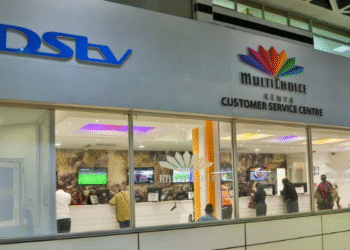The main focus of the Finance Bill 2025 is on fixing problems in how taxes are managed and collected. It doesn’t aim to create new taxes or raise existing tax rates.
This bill quietly allows the Kenya Revenue Authority (KRA) to access taxpayer information by changing the Tax Procedures Act.
There is special attention given to changes in Value Added Tax (VAT), particularly moving many goods and services from being Zero-Rated to VAT Exempt.
Key Proposals and Their Possible Effects
1. Changes to Tax Procedures Act (TPA)
– No Protection Against System Integration:
The bill suggests removing a rule that prevented KRA from asking businesses to connect their systems if it could reveal sensitive information.
Possible Effects:
– This could lead to privacy issues and increased cybersecurity risks for businesses.
– Waiver Powers for the Cabinet Secretary (CS):
The bill gives the Cabinet Secretary the power to cancel penalties or interest on:
– Mistakes from electronic tax systems
– Delays in updating systems
– Duplicate penalties due to system errors
These powers were previously taken away by the Finance Act 2023. Importantly, the bill does not extend the amnesty period given by the Tax Amendment Acts 2024.
2. Changes to VAT
– Moving Goods to VAT Exempt Status:
The bill proposes to change the status of several items from Zero-Rated to VAT Exempt, including:
– Raw materials for medicine production
– Transportation of sugarcane to factories
– Locally made mobile phones
– Electric bicycles
– Solar and lithium-ion batteries
– Raw materials for animal feed production
Possible Effects:
– Prices for consumers, especially in healthcare, agriculture, renewable energy, and telecommunications, may increase.
– Zero-rated items allow producers to claim back VAT, making them cheaper to produce.
– Exempt items don’t allow this, raising production costs.
– Using VAT Exempt or Zero-Rated Goods for Wrong Purposes:
The bill suggests that if exempt or zero-rated goods are used incorrectly, taxes will need to be paid.
Possible Effects:
– This aims to stop revenue loss from incorrect use of tax benefits.
– It could be challenging to determine what is considered misuse, leading to more compliance issues for businesses.
– Extending VAT Refund Timelines:
The time KRA has to process VAT refunds will increase from 90 to 120 days, and audits will take longer, from 120 to 180 days.
Possible Effects:
– Longer wait times for refunds may affect cash flow, especially for businesses exporting goods and those needing more capital.
3. Changes to Income Tax
– Increasing Tax-Free Per Diem:
The limit for tax-free travel allowances will be raised from KES 2,000 to KES 10,000 per day.
Possible Effects:
– This change helps employees who have higher expenses when travelling for work.
– Exempting Gratuity from Income Tax:
Gratuity will be added to the list of items that are not taxed.
Possible Effects:
– Retiring or terminating employees will benefit from this tax relief.
– CGT Exemption on Property Transfer:
The bill proposes that transferring property from an individual to a company, where the person is the only owner, will be exempt from Capital Gains Tax (CGT).
This information highlights the proposed changes and what they might mean for businesses and individuals in Kenya.















